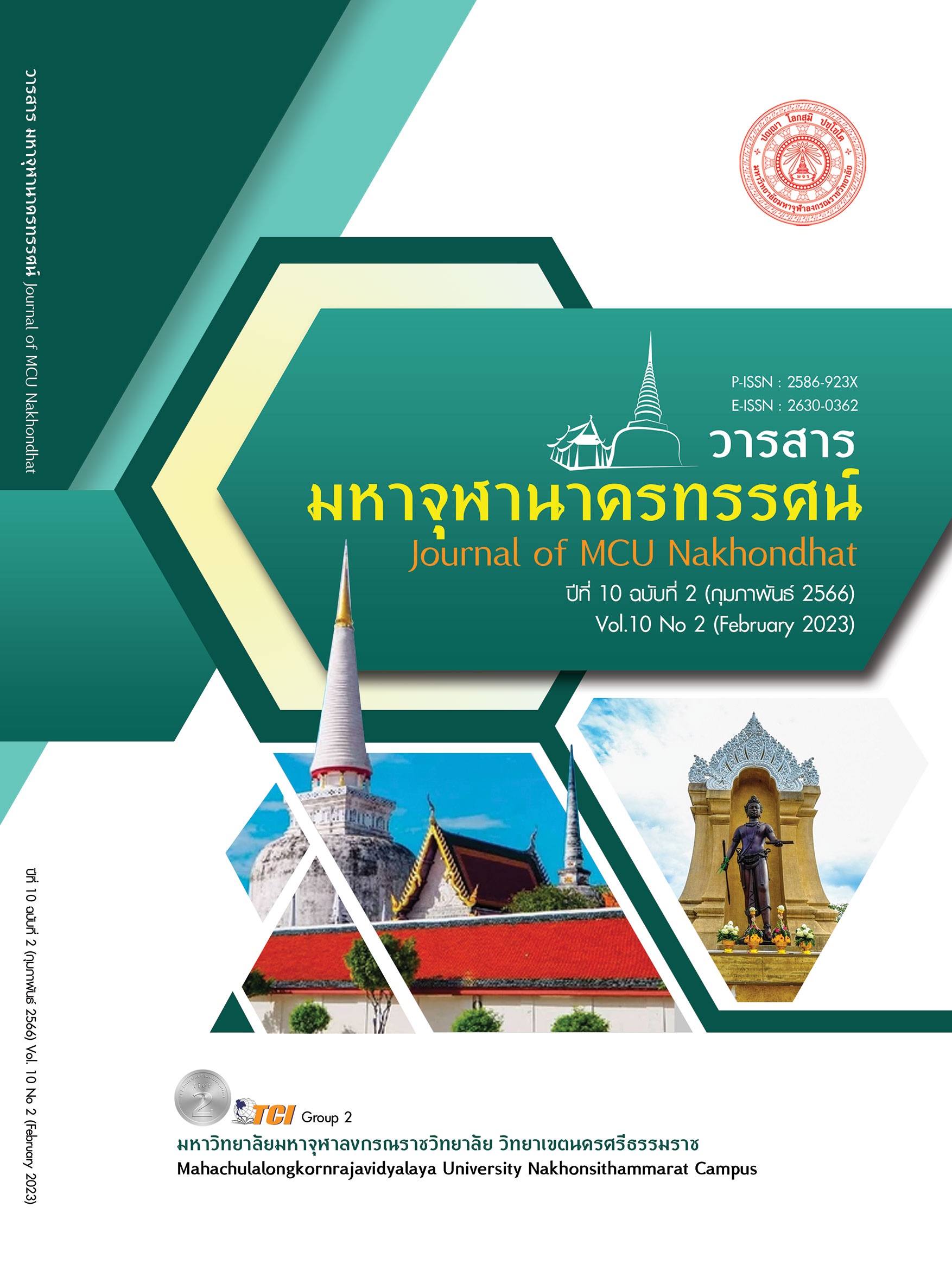LEADERSHIP AND ADMINISTRATION BASED ON THE GOOD GOVERNANCE PRINCIPLES AFFECTING THE LOCAL DEVELOPMENT OF MUNICIPALITIES IN NAKHON RATCHASIMA PROVINCE
Main Article Content
Abstract
The purposes of this research were: 1) to study level of the local development in Nakhon Ratchasima Province; 2) to analyze the leadership and administration based on the good governance principles affecting the local development of municipalities in Nakhon Ratchasima Province; and 3) to present the guidelines of the local development in Nakhon Ratchasima Province. This was the quantitative and qualitative research. The population was the people to be over 18 years, have a House Particulars of Mueang District, Nakhon Ratchasima Province. The quantitative research have sample of 400 people. The research instrument used was a questionnaire; the qualitative research have key informant of 20 people, the research instrument used was an interview. The statistics used in the analyses were the frequency, percentage, mean, standard deviation, multiple linear regression, and correlation analysis. The research results were found that: 1) the local development of municipalities in Nakhon Ratchasima Province, had a high level of overall; the descending order mean the aspect of the development of safety in life and property, the public health development, the infrastructure development, and the agricultural development, respectively; 2) the leadership and administration based on the good governance principles, the risk, the changing adhere to the follower, the confident communication, effectiveness & efficiency and response affected the local development of municipalities in Nakhon Ratchasima Province at the statistically significant level of .05, and 3) the civic leaders manage integrated administration using good governance as a model for local development. Support for people be fair and equal by the encouraging public participation for sustainable development.
Article Details

This work is licensed under a Creative Commons Attribution-NonCommercial-NoDerivatives 4.0 International License.
References
เชาวนะ ไตรมาศ. (2547). การนำระบบบริหารธรรมาภิบาลมาใช้ในการบริหารมุ่งผลสัมฤทธิ์กับ การบูรณาการการบริหารจัดการเพื่อสร้างความเป็นเลิศทางพิสัยสามารถของคนในองค์การ. กรุงเทพมหานคร: สำนักงานคณะกรรมการวิจัยแห่งชาติ.
กิตติ์รวี เลขะกุล. (2561). ธรรมาภิบาล วัฒนธรรมองค์การที่ส่งผลต่อประสิทธิผลองค์การของเทศบาลในเขตภาคใต้ของประเทศไทย. ใน ดุษฎีนิพนธ์รัฐประศาสนศาสตรดุษฎีบัณฑิต. มหาวิทยาลัยหาดใหญ่.
คณิน บุญสุวรรณ. (2551). รัฐธรรมนูญ 2540 แก้ไขเพิ่มเติม 2551 ทางออกประเทศไทย. กรุงเทพมหานคร: วิญูชน.
ชัยวุฒิ วรพินธุ์ และคณะ. (2557). คุณลักษณะภาวะผู้นำยุคใหม่กับสมรรถนะการบริหารงานแบบมืออาชีพของปลัดเทศบาลในภาคกลาง. สมาคมนักวิจัย, 19(1), 86-96.
ทยิดา ยันตะบุษย์. (2559). ภาวะผู้นำ วัฒนธรรมองค์การ หลักธรรมาภิบาลที่ส่งผลต่อประสิทธิผลขององค์การ. ใน ดุษฎีนิพนธ์ปรัชญาดุษฎีบัณฑิต สาขาวิชาการบริหารการพัฒนาองค์การ. มหาวิทยาลัยเทคโนโลยีพระจอมเกล้าพระนครเหนือ.
ธงชัย สันติวงษ์. (2550). การบริหารงานบุคคล. (พิมพ์ครั้งที่ 7). กรุงเทพมหานคร: ไทยวัฒนาพานิช.
ธร สุนทรายุทธ. (2551). การบริหารจัดการเชิงปฏิรูป: ทฤษฎี วิจัย และปฏิบัติทางการศึกษา. กรุงเทพมหานคร: บริษัท เนติกุลการพิมพ์ จำกัด.
พรรณี โลกลินไลน์. (2553). บทบาทขององค์การบริหารส่วนตำบลคำตากล้า ต่อการพัฒนาชุมชนในเขตตำบลคำตากล้า อำเภอคำตากล้า จังหวัดสกลนคร. ใน วิทยานิพนธ์รัฐประศาสนศาสตร์มหาบัณฑิต. มหาวิทยาลัยราชภัฏสกลนคร.
พรสวัสดิ์ ศิรศาตนันท์. (2555). ภาวะผู้นำทางการศึกษา. จันทบุรี: คณะครุศาสตร์ มหาวิทยาลัยราชภัฏรำไพพรรณี.
รพีพร ธงทอง. (2561). ภาวะผู้นำและวัฒนธรรมองค์การที่ส่งผลต่อการพัฒนาท้องถิ่น. วารสารวิจัยและพัฒนามหาวิทยาลัยราชภัฏเลย, 13(45), 103-114.
วิรัช วิรัชนิภาวรรณ. (2549). การพัฒนาเมืองและชนบทประยุกต์. กรุงเทพมหานคร: สำนักพิมพ์ฟอร์เพช.
สถาบันพระปกเกล้า. (2549). ทศธรรม: ตัวชี้วัดการบริหารกิจการบ้านเมืองที่ดี. กรุงเทพมหานคร: สถาบันพระปกเกล้า.
Agere, Sam. (2000). Promoting Good Governance. London: Pall Mall.
Cronbach, L. J. (1970). Essentials of Psychological Testing. New York: Harper & Row.
Daft, R. L. (2003). Management. (6th ed). New York: Thomson.
Yamane, T. (1973). Statistics: An Introductory Analysis. (3rd ed). New York: Harper and Row.


